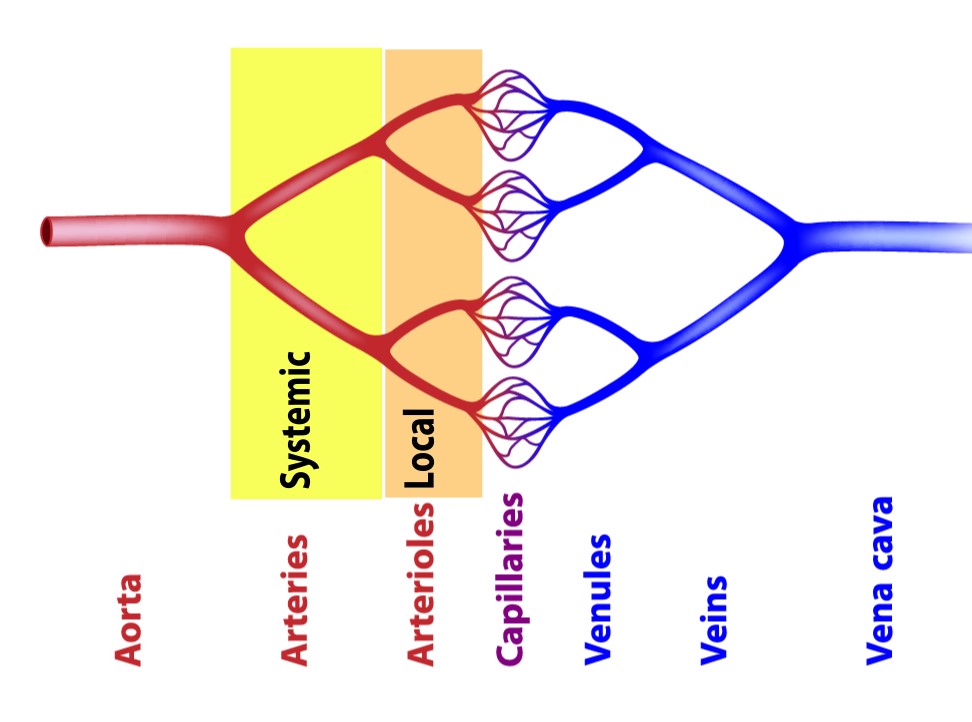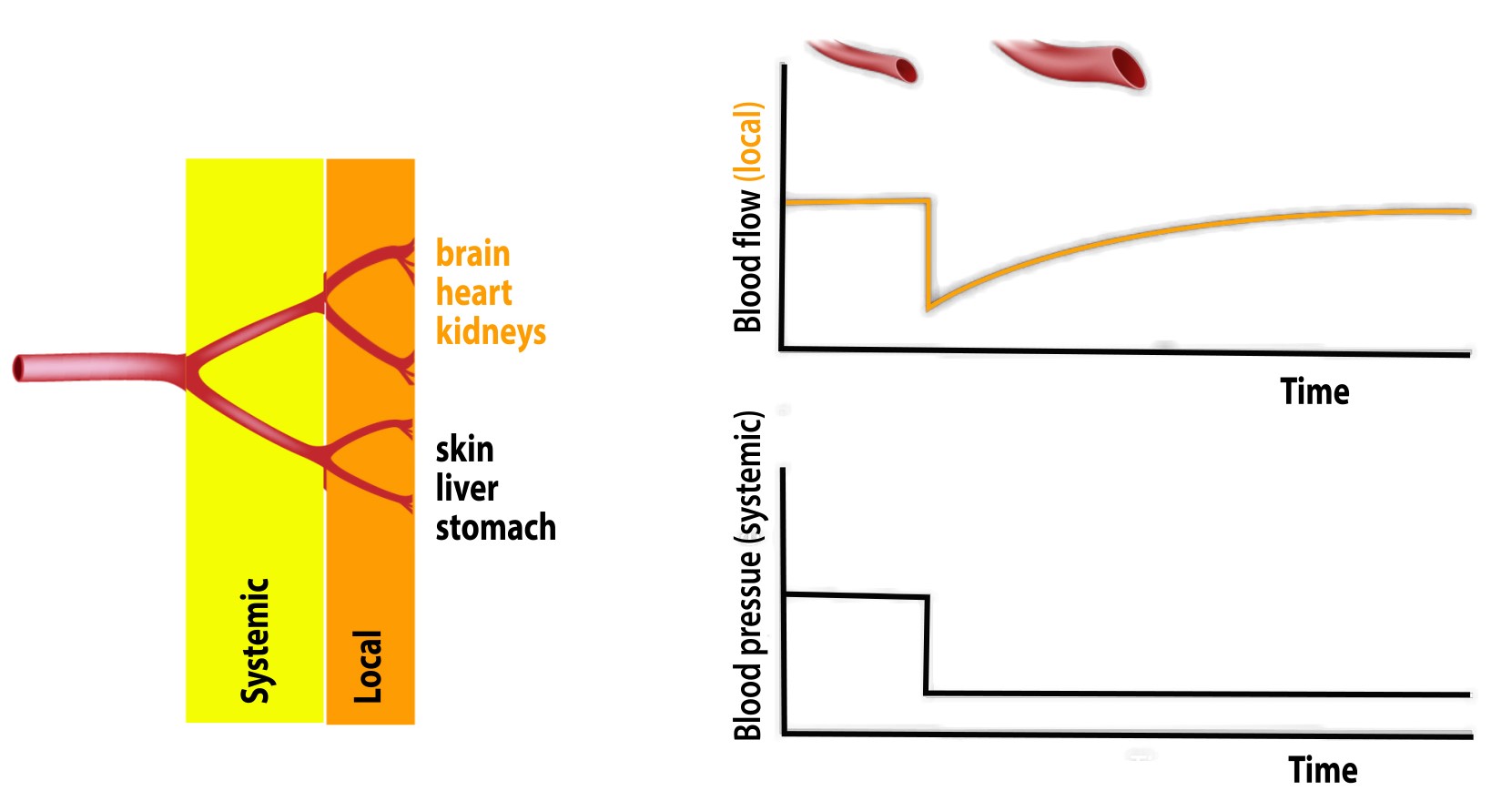Vascular Autoregulation of Blood Pressure Explained Clearly
Mechanisms of Autoregulation of Local Blood Flow Explained in 4 minutes.
This lesson includes an animated video lecture, downloadable images, quiz questions and a PDF
Vascular autoregulation refers to the intrinsic ability of an organ to maintain constant (local) blood flow despite changes in systemic arterial pressure. Autoregulation ensures that critical organs, such as the brain and heart, are adequately perfused within a range of blood pressure values, known as the autoregulatory limits.

For example, when blood pressure decreases, baroreceptor reflex constricts much of the systemic vasculature, but blood flow to the brain remains largely unaffected. This is because the initial decrease in flow will cause small arteries and arterioles in the brain to dilate, returning the flow to normal or near-normal levels, typically within seconds. Conversely, when acute increases in blood pressure produce an initial increase in flow, small vessels will constrict to reduce flow.

Subscribe to one of the courses below to continue!
This content is available within the following courses:

Basic Fundamentals of Cardiology: 40 animations, plus downloadable PDFs, downloadable images, and quizzes.

Basic Fundamentals of Cardiology: 40 animations, plus downloadable PDFs, downloadable images, and quizzes.